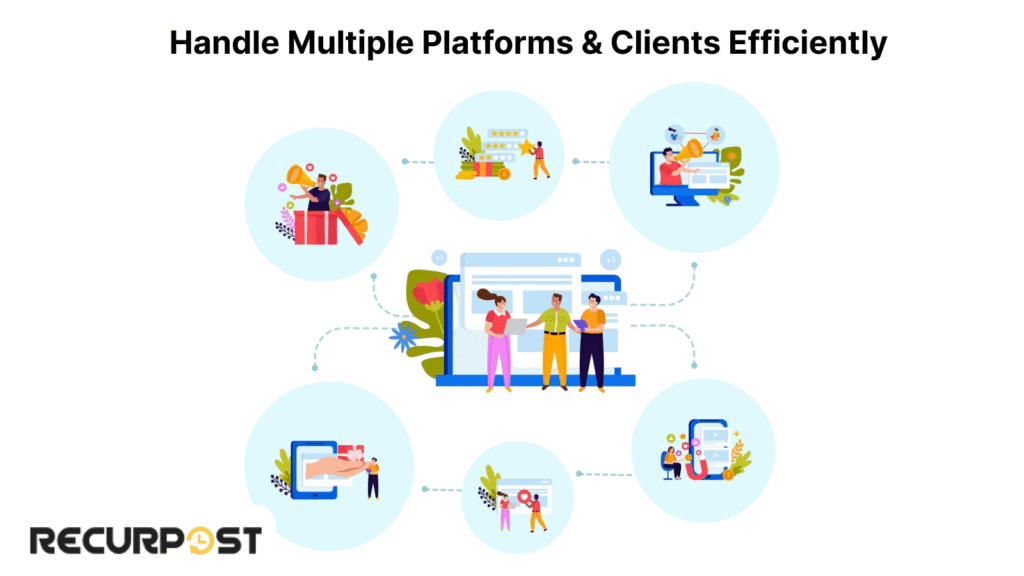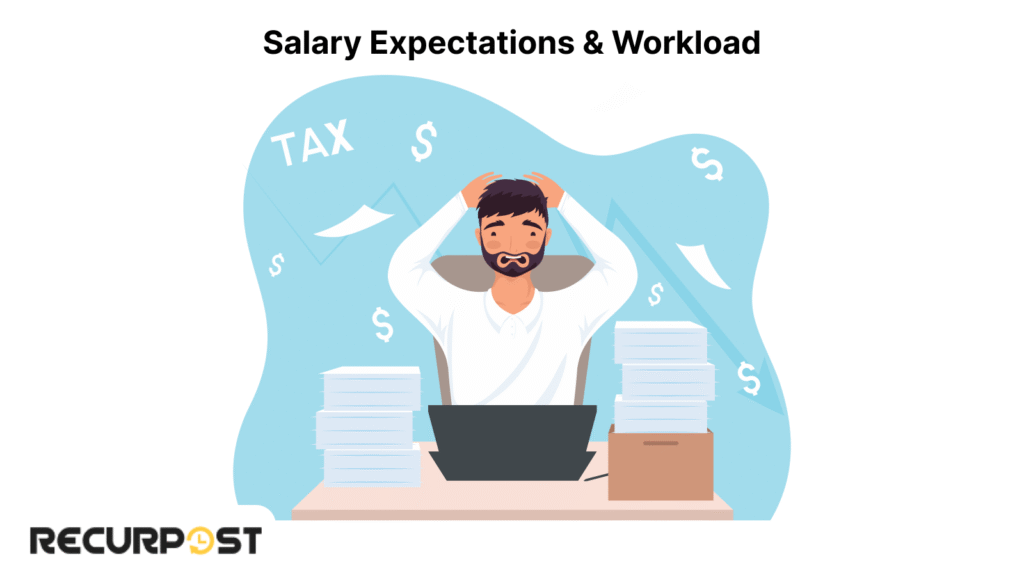The Growing Demand for Freelance Social Media Managers and Jobs in Digital Marketing
A freelance social media manager experiences high demand in 2025 as businesses across industries invest in social media management. Companies recognize the reach of Instagram, Facebook, LinkedIn, TikTok, and YouTube, driving growth in media manager jobs. A freelance social media manager creates and manages content, develops campaigns, and supports multiple clients while working remotely.
The freelance social media management market grew by 35% in 2024, with more than 150,000 professionals working globally. As companies see the value of digital marketing for brand visibility, they hire freelance social media managers to stay connected with audiences, increase engagement, and secure long-term careers in this growing field.
The rise of freelance social media managers connects with businesses of all sizes, from startups to global marketing agencies seeking an active online presence. Social media marketing is now a standard part of modern management practices that every company must adopt.
This career path offers freelancers steady opportunities. Many freelance social media managers find new projects every 3–6 months while maintaining retention rates of 78% across industries. The role now covers content scheduling, analytics, campaign execution, and long-term client management.
This guide covers the skills, tools, and knowledge needed to become a freelance social media manager. It shares insights on freelance careers, media management tools, client projects, and job openings that help you thrive in this expanding market.
What Does a Freelance Social Media Manager Do?
A freelance social media manager handles all aspects of social media management for clients: from content creation to analytics. They plan, schedule, and manage posts across platforms while working remotely. Unlike in-house media managers, freelancers juggle multiple clients with unique goals and contract-based agreements.

Role Overview: Core Tasks of a Freelance Social Media Manager
A freelance social media manager typically allocates time across these tasks:
- 30% on content creation: writing posts, designing graphics, editing videos, and producing content that attracts clients and supports digital marketing campaigns.
- 25% on analytics and performance tracking: reviewing engagement, conversions, and growth metrics to refine campaigns and measure ROI for freelance careers.
- 20% on client communication: regular updates, reporting, email check-ins, and project management discussions with clients.
- 15% on social media strategy development: crafting plans that align with client goals, brand voice, and budget.
- 10% on platform monitoring: trend research, competitor analysis, and audience engagement through comments, DMs, and community management.
This task mix makes the role dynamic, blending creativity, analytics, client management capability, and remote work flexibility.
Types of Clients for Freelance Social Media Managers
A freelance social media manager collaborates with a diverse range of clients, including digital marketing freelancers and local brands. Examples include:
- Digital marketing agencies: handling cross-industry campaign execution and reporting.
- SMEs and small businesses: expanding reach through social media advertising freelancer services.
- Coaches and educators: using content creation and personal branding strategies to grow audiences.
- Real estate agencies: showcasing properties with photo and video campaigns.
- Solo entrepreneurs and influencers: supporting freelance social media marketing projects and personal brand growth.
Core Responsibilities of Freelance Social Media Managers
Core duties of a freelance social media manager include:
- Content strategy development: planning post frequency, messaging, and audience targeting for better social media careers.
- Platform management: handling multiple accounts across Facebook, Instagram, LinkedIn, TikTok, YouTube, and Pinterest using social media management tools.
- Campaign execution: launching organic and paid social freelancer campaigns with precise targeting.
- Performance monitoring: tracking engagement, conversions, CTR, and other metrics to refine campaigns.
Platform-Specific Responsibilities in Freelance Social Media Management
Here’s a quick breakdown of what freelance social media managers handle across major platforms:
| Platform | Key Responsibilities |
| community building, event promotion, and paid advertising management. | |
| visual content, reels, stories, influencer collaborations. | |
| professional content, networking, thought leadership, and career growth opportunities. | |
| TikTok | trendy short videos, viral challenges, influencer partnerships |
| YouTube | long-form content, SEO optimization, and audience engagement. |
Additional Insights
A freelance social media manager often collaborates with photographers, videographers, and graphic designers to produce high-quality content for their target audience. This teamwork ensures cohesive strategies, consistent branding, and engaging posts that improve freelance career opportunities.
Key Skills for a Successful Freelance Social Media Manager
Becoming a standout freelance social media manager requires diverse skills beyond platform basics. Success comes from creativity, analytics expertise, client management capability, and strategic planning. These skills define strong freelance careers in digital marketing.

Creating engaging content sits at the core of freelance social media management. Posts, graphics, and videos must match audience needs and client branding. Strong content creation skills combine creativity, design knowledge, and storytelling.
Tip: Use tools like Canva or Adobe Spark for easy-to-create visuals and keep content fresh with new formats, like infographics or polls.
Analytics Expertise in Freelance Social Media Jobs
A successful freelance social media manager uses data, not guesswork. KPIs like engagement, reach, and conversions guide social media management strategies and show ROI for clients.
Tip: Familiarize yourself with platforms like Google Analytics, Instagram Insights, and Facebook Analytics to track and measure the performance of your content.
Platform Management Across Media Manager Jobs
Every platform has unique audiences. A freelance social media manager manages Facebook, Instagram, LinkedIn, TikTok, YouTube, and more. Knowledge of algorithms and media management tools boosts engagement and supports freelance careers.
Tip: Keep up with each platform’s latest updates (such as Instagram’s algorithm changes) to optimize your content for maximum visibility.
Client Management & Communication for Freelance Social Media Managers
Strong client management capability is essential in freelance social media jobs. Every client has unique expectations and goals. Clear updates, consistent communication, and timely reports keep projects aligned.
Tip: Use tools like Trello or Asana to keep track of client tasks and deadlines, and always send regular reports to update clients on performance.
Strategic Planning Ability for Freelance Social Media Marketing
Successful social media marketing freelance work begins with strategy development. Clear goals, content calendars, and targeted post types support client campaigns and long-term freelance careers.
Tip: Always align your social media campaigns with your client’s overall marketing objectives to ensure your work contributes directly to their business goals.
Brand Voice Maintenance in Freelance Social Media Management
One of the vital aspects of social media management is consistent brand voice maintenance. Posts must match the client’s tone: playful, formal, or professional, for trust and recognition across platforms
Tip: Create a brand voice guide for each of your clients to refer back to whenever you’re unsure about tone or messaging.
Building Your Social Media Presence
As a freelance social media manager, your online presence acts as a business card. Showcasing social media marketing skills builds trust, attracts freelance jobs, and strengthens your reputation across digital marketing careers.

Personal Branding for Freelance Social Media Jobs
Building a personal brand helps any freelance social media manager stand out. Share campaign wins, industry updates, and content creation examples. Use social listening tools to spot opportunities, track trends, and boost brand awareness metrics.
Creating Valuable Content for Social Media Freelancers
Social media freelancers showcase value through writing, campaign results, and social media strategy development. Post client success stories, share data-driven insights, and highlight analytics expertise to win new freelance careers.
Networking Opportunities for Freelance Social Media Managers
Networking is vital in freelance social media jobs. Build relationships with media managers, marketing teams, and influencers to find new opportunities. Join LinkedIn groups, attend digital events, and follow industry leaders to expand visibility.
Build Long-Term Client Relationships
Building long-term trust is vital for a sustainable freelance social media manager career. By balancing multiple projects, maintaining consistent communication, and offering reliable media management, freelancers retain clients and gain high-paying referrals.

Effective Communication in Freelance Social Media Jobs
A successful freelance social media manager stays connected with clients through clear updates. Sharing metrics like engagement, reach, and conversions shows active management. Use Asana, Trello, or social media management platforms to organize communication and streamline reporting.
Exceeding Expectations in Freelance Social Media Careers
The best freelance social media managers go beyond expectations. Share audience engagement reports, analytics, and campaign insights. Recommend new social media strategy development ideas to improve brand visibility and strengthen long-term freelance careers.
Referral Strategy for Social Media Freelancers
Satisfied clients often bring referrals that expand freelance social media jobs. Social media freelancers should let clients know they are seeking new opportunities. After each campaign execution, ask for referrals to grow your client base.
How to Handle Multiple Platforms and Clients Efficiently
Managing several accounts and clients can overwhelm any freelance social media manager, but the right social media management tools and workflows make projects efficient and profitable.

Use Content Scheduling Tools and a Social Media Calendar
A social media calendar or content scheduling tool organizes posts across platforms. It ensures consistent delivery, better media management, and eliminates last-minute content scrambles.
Content Repurposing for Freelance Social Media Marketing
Repurposing content creation saves time for social media freelancers. The same campaign assets can be reshaped into Instagram posts, TikTok videos, LinkedIn articles, or Twitter/X threads, ensuring consistent messaging across networks.
Delegate When Necessary in Freelance Careers
Even as you manage overall strategy, outsourcing tasks can help. Delegate community management, campaign execution, or content creation to teammates so multiple clients are handled without sacrificing quality in your freelance career.
The Appeal of Remote Work & Flexibility in Freelance
Freelance social media management offers freedom and flexibility as core benefits. A freelance social media manager can manage accounts from any location, set a flexible schedule, and serve global clients.

Remote Work Capability in Freelance Social Media Jobs
A freelance social media manager works from anywhere—home offices, cafés, or beaches. This remote work capability removes commuting, saves time, and only requires internet access for effective media management
Tip: To stay productive, invest in a good home office setup, and use productivity tools like Trello and Slack to stay organized and communicate with clients.
Productivity in Remote Freelance Careers
Remote workers report higher productivity than office staff. A freelance social media manager completes tasks faster with fewer distractions, benefiting both client projects and long-term freelance careers.
Flexible Scheduling for Freelance Social Media Managers
A freelance social media manager enjoys flexible scheduling. Early riser or night owl, you can set your hours. This matters when serving international clients across time zones—freelancers adjust without a strict 9-to-5.
Tip: Use scheduling tools like RecurPost to automate posts, which allows you to focus on other tasks while content gets published at optimal times for different time zones.
Time Zone Management in Freelance Social Media Jobs
For freelance social media jobs, managing accounts across time zones is essential. Plan content calendars and post schedules around the audience’s peak activity for higher engagement.
Client Management Capability in Freelance Social Media Careers
A freelance social media manager often balances multiple clients at once. Strong client management capability ensures timely delivery and consistent posting across platforms. Clear priorities prevent overwhelm and support lasting freelance careers.
Tip: Use project management tools like Asana or Monday.com to organize client tasks, deadlines, and content calendars. This will make juggling multiple clients much easier and more efficient.
Building a Diverse Portfolio in Freelance Social Media Jobs
A diverse portfolio benefits social media freelancers. Working with real estate, e-commerce, coaching, or entertainment brands builds skills, strengthens credibility, and ensures steady freelance jobs.
Tip: Don’t hesitate to take on clients from different industries. This diversity will broaden your skill set and make you more adaptable to various social media needs.
Tax Considerations for Freelance Social Media Managers
Freelancing also brings responsibilities. A freelance social media manager must manage taxes, business registration, and track expenses. Many freelancers use accountants or tools for compliance.
Tip: Use accounting software like QuickBooks or FreshBooks to keep track of your earnings and expenses, making tax time a lot easier.
Overcoming Common Challenges in Freelance
Freelance social media management offers rewards but comes with challenges. A freelance social media manager must juggle clients, adapt to trends, and process feedback while maintaining a long-term freelance career.

Managing Multiple Clients
Handling multiple clients is challenging for any freelance social media manager. Each has unique needs and timelines. Strong client management capability and organized workflows prevent overwhelm in freelance jobs.
Tips:
- Use content calendars to plan posts and ensure timely delivery. Tools like Trello and Asana can help you track tasks, set deadlines, and collaborate with clients seamlessly.
- Batching your tasks can also help you stay on track. For example, create all of your content in one session, then schedule posts and engage with your audience in another.
Staying Updated with Social Media Trends
Social media evolves fast—new platforms, algorithms, and trends change daily. A freelance social media manager must track updates while managing multiple accounts for diverse digital marketing clients
Tips:
- Subscribe to industry blogs and join social media management groups on platforms like Facebook or LinkedIn to stay informed. Set aside time each week to read articles or watch webinars to ensure you’re in the loop.
- Keep an eye on trending hashtags and viral content on platforms like TikTok or Instagram to stay relevant and tap into popular trends for your clients.
Balancing Client Expectations
Each client brings unique expectations. Some want daily posts and detailed reports; others prefer minimal updates. A freelance social media manager avoids conflict by setting clear scopes, timelines, and deliverables upfront.
Tips:
- Set clear expectations from the beginning by outlining your scope of work, deliverables, and deadlines in a contract. Regular check-ins with clients help ensure everyone is on the same page and there are no surprises.
- Use Google Docs or Notion to create a shared space for client feedback, revisions, and project updates. This way, both you and your clients can see progress in real-time.
Managing Client Revisions
Freelance social media managers often face endless revisions. Flexibility is needed, but clear revision limits protect workloads. Boundaries help maintain quality and prevent project delays.
Tip:
- Establish a clear revision policy in your contract. Limit the number of revisions and include a fee for additional changes. This will help protect your time and ensure clients are happy without overwhelming you with constant adjustments.
Avoiding Burnout in Freelance
Freelance work can strain any social media freelancer. Managing multiple clients, strict deadlines, and long hours risks burnout without balance.
Tips:
- Take regular breaks throughout your day. Tools like Pomodoro timers can help you focus for short bursts while taking frequent breaks to avoid fatigue.
- Set boundaries with clients and avoid working weekends or late into the night. Use scheduling tools to automate posts and minimize manual tasks, allowing you to take time off without sacrificing work quality.
How to Land Freelance Social Media Manager Jobs
Landing freelance social media manager jobs can be tough at first. With persistence, a strong portfolio, and smart networking, a freelance social media manager can secure steady clients and long-term freelance careers. Here are tips to help you find freelance opportunities in digital marketing.

Building Your Portfolio
A freelance social media manager’s portfolio acts as their resume. Showcase your work to clients by including graphics, blogs, videos, and paid ad campaigns. Highlight projects across social media marketing to stand out.
If new to the field, collaborate with small businesses or offer services pro bono for testimonials. Build case studies with engagement growth, conversions, or follower increases to strengthen the media manager’s credentials.
Tip: Organize your portfolio by platform (Instagram, Facebook, TikTok) or industry (e.g., Real Estate, E-commerce) to show potential clients your experience in their specific niche.
Networking & Finding Clients
Networking builds visibility and client trust. A freelance social media manager who expands connections finds freelance jobs faster. Strategies include:
- LinkedIn: Connect with marketers, owners, and recruiters. Post updates and insights to build visibility in digital marketing.
- Industry events: Attend webinars, conferences, and networking events to connect with potential clients and collaborators in freelance social media marketing.
- Referrals: Past and current clients can expand your freelance social media career. Always ask satisfied clients for recommendations.
Freelance Job Boards and Media Manager Jobs Platforms
Job boards offer access to freelance social media management roles. Popular options include:
- FlexJobs, We Work Remotely, SimplyHired: Post freelance social media manager jobs daily.
- Upwork and Fiverr: Useful for early freelance jobs, building portfolios, and finding clients in digital marketing.
- Social media marketing groups: Join Facebook or Slack groups to connect with other freelancers and discover client opportunities.
Client Onboarding Process
Once a freelance social media manager lands a client, a smooth onboarding process aligns goals and expectations. This sets the foundation for long-term client management capability.
Use Google Forms or Typeform to gather client brand goals, budgets, and expectations. Tailor social media management strategies accordingly.
Tip: Set up a contract that includes details on payment terms, timelines, scope of work, and revisions to ensure everyone is on the same page from the start.
Tailoring Your Pitch
A strong pitch wins freelance social media manager jobs. Whether on Upwork or LinkedIn, personalize proposals to client challenges, showing how your skills solve their problems.
Tip: Highlight relevant experience, share success stories, and explain how you can make a difference for their brand. Personalize each pitch to show the client you’ve done your research and understand their business.
Tools Every Freelance Social Media Manager Should Know
To manage multiple clients and track trends, a freelance social media manager must use the right social media management tools. These tools streamline workflows, support media management, and improve content creation for freelance careers.

Analytics Tools
Audience insights define success. Analytics dashboards track engagement, reach, impressions, conversions, and ROI. They refine strategies and prove value for freelance jobs.
- Google Analytics: Tracks website traffic, conversions, and referral sources for campaigns.
- Hootsuite Insights: Combines analytics and social listening tools to track mentions and performance.
- Buffer Analyze: Measures key metrics across Instagram, Facebook, Twitter/X, and LinkedIn.
- Sprout Social: Provides detailed analytics reports for social media freelancers managing multiple clients.
Content Scheduling & Publishing Tools
Consistent posting requires content scheduling tools. They automate posts, save time, and ensure publishing at peak engagement times.
- RecurPost: Automates posts across platforms, tracks results, and repurposes content for long-term scheduling.
- Hootsuite: All-in-one for scheduling, engagement, and campaign execution.
- Later: Visual tool for Instagram and TikTok scheduling, perfect for social media freelancers.
Tip: Use RecurPost to repurpose content across social media platforms and set up automated posting. This tool can help you create a content calendar, organize posts, and maintain a consistent posting schedule without manually uploading content every time.
Hashtag Optimization Tools
Hashtags increase reach. Freelance social media managers use hashtag optimization to find trending tags, analyze performance, and improve visibility.
- RiteTag: Suggests trending hashtags in real time.
- Hashtagify: Tracks hashtag performance and popularity within niches.
Social Listening Tools
Social listening tools monitor brand mentions, competitors, and industry conversations. They give freelance social media managers insights to adjust strategies and strengthen client management capability.
- Brandwatch: Tracks mentions, sentiment, and competitor trends.
- Mention: Tracks brand and keyword mentions across social, blogs, and news.
- Sprinklr: Offers listening, customer service, and multi-channel social media management.
Collaboration & Project Management Tools
Strong communication drives freelance careers. Collaboration tools keep projects on track and simplify client management
- Slack: Messaging platform for clients and teams. Organize by channels for efficient communication.
- Trello: Simple boards for tracking client tasks and campaigns.
- Asana: Breaks down tasks, assigns deadlines, and manages content creation workflows.
Graphic Design Tools
High-quality visuals are key for a freelance social media manager. Design tools simplify content creation and help posts stand out.
- Canva: Quick designs for posts, infographics, and campaigns.
- Adobe Spark: Professional visuals without advanced design skills.
These tools make life easier for a freelance social media manager. By integrating them into workflows, you’ll stay organized, track performance, and deliver engaging social media management content.
Salary Expectations & Workload
A freelance social media manager enjoys flexibility while balancing financial and time commitments. Here’s a breakdown of expected hourly rates, package pricing, workload, and compensation models in freelance careers.

Freelance Hourly Rates
A freelance social media manager’s hourly rate depends on skill, industry, and client needs. Typical hourly rates ($15–150) reflect expertise, location, and project scope.
- Entry-level: $25–$50/hr. Common with small business clients or basic social media management services.
- Mid-level: $50–$100/hr. Larger brands and complex campaigns pay higher rates as freelancers expand skills.
- Expert-level: $100–$150/hr or more. High-profile clients, niche expertise, or long-term contract work justify premium rates.
Workload Insights
Freelancers usually work 15–20 hrs per week. Some social media freelancers keep workloads light; others scale hours for more income in freelance jobs.
- Client portfolio: A freelance social media manager often handles 3–5 clients. Time depends on account complexity and campaign demands.
- Content production: Typically 15 posts per week. Output varies—some clients need daily posting while others prefer limited but targeted updates.
Package Pricing vs. Hourly Rates
Many freelance social media managers use package pricing instead of hourly rates. This gives clarity, prevents scope creep, and aligns expectations for long-term freelance careers.
Tip: If you choose to charge by the project or package, consider including the creation of a content calendar, weekly or monthly reports, and a set number of posts. Pricing packages might range from $500 to $5,000 per month depending on the number of platforms, level of work, and client size.
Contract Duration
Contracts for freelance social media managers last 6 months or more. Retainer models provide steady income and client retention in freelance jobs.
Tip: Establish clear terms in your contract regarding the length of the engagement, payment schedules, and expectations. This helps prevent misunderstandings and keeps both you and your client aligned.
Geographic Salary Variations
Location influences pay. A freelance social media manager in big cities or with high-end clients charges more compared to rural freelancers.
Global rates: International freelance opportunities often pay more, especially for niche services like influencer marketing or TikTok campaigns.
Tip: Don’t forget to consider currency exchange rates if you’re working with clients abroad. Some platforms, such as Upwork or Fiverr, allow you to set your rates in local currency or USD, which can affect your final earnings.
Remote Work Compensation Trends
Remote social media freelancers earn rates based on expertise, though some companies adjust pay to cost of living in regions
Tip: Be open to negotiating rates based on the value you provide. Consider offering tiered packages for different levels of service, which will help you cater to clients with varying budgets.
Legal Considerations and Contracts
A freelance social media manager must protect their business by covering the legal side of freelancing. Strong skills matter, but clear contracts and compliance secure long-term freelance careers.

Essential Contract Elements
For freelance social media jobs, contracts are non-negotiable. Cover payment terms, project scope, timelines, and rights to content. Define ownership of content creation once work ends.
Intellectual Property Rights
A freelance social media manager should clarify ownership early. State whether the freelancer or client keeps intellectual property rights to data, designs, and posts to prevent disputes.
Tax Considerations and Invoicing
Freelance social media managers must manage income, invoices, and taxes carefully. Use tools to connect analytics dashboards with revenue tracking. Always send clear invoices on time to protect contract work income.
Diversifying Services and Upsell Opportunities
Offering extra services sets a freelance social media manager apart and increases income. Clients value service packages that include more than routine posts in freelance social media marketing.

Freelance Social Media Advertising and Paid Campaigns
Many clients need paid social media ads to increase visibility. A paid social freelancer can design campaigns, manage budgets, and add advertising to digital marketing freelancer services.
Influencer Marketing as an Upsell for Freelance Social Media Managers
A freelance social media manager can manage influencer partnerships. Offering influencer marketing broadens reach, strengthens campaigns, and diversifies freelance opportunities.
Expanding Content Creation Beyond Social Media
Expand content creation skills beyond social platforms. Offer blog writing, SEO, or email marketing. These upsells position a freelance social media manager as a versatile digital marketing freelancer.
Niche Specialization: Should You Focus on a Specific Industry?
A freelance social media manager who specializes in one industry or platform can command higher rates and become a trusted expert in freelance social media marketing.

Why Specialize as a Freelance Social Media Manager?
Demand for specialized social media freelancers is growing. A freelance social media manager who focuses on real estate, fitness, or e-commerce tailors strategies to niche markets, adding value through targeted content creation skills.
How to Identify a Niche?
To find a niche, assess industries needing consistent content creation and media management. Sectors like real estate, e-commerce, or coaching rely heavily on freelance opportunities, making them ideal for a specialized freelance social media manager.
Staying Creative and Avoiding Burnout
Creativity drives freelance social media managers, but avoiding burnout is just as important. Keeping ideas fresh ensures long-term success in freelance careers.

Creative Breaks
Take personal project breaks. For a freelance social media manager, side projects recharge creativity and keep content creation skills sharp.
Effective Time Management
Use content scheduling tools and realistic deadlines to manage multiple posts. A freelance social media manager should schedule breaks to balance projects and prevent overload.
Prioritizing Mental Health
Set boundaries for work-life balance. Social media freelancers who disconnect from analytics dashboards and data return refreshed, with stronger ideas and energy.
Building a Sustainable Freelance Social Media Management Career
A freelance social media manager career offers flexibility, creativity, and global client work. To thrive, professionals must upskill, follow industry trends, and strengthen client management capability.
Key Takeaways
- Diverse skill set: A successful freelance social media manager blends creativity, analytics, and communication. Core strengths include content creation, data analysis, and strategic planning ability.
- Tools and resources: Use content scheduling tools, analytics dashboards, and design platforms. These tools help social media freelancers manage multiple clients and deliver consistently.
- Remote flexibility: Freelance opportunities let managers work globally, set their schedules, and run remote social media jobs effectively.
- Client acquisition and retention: Strong portfolios, networking, and freelance job platforms help secure work. Building long-term client trust sustains social media freelancing careers.
- Time management and boundaries: Use project management tools, set expectations, and maintain balance. These practices prevent burnout and sustain freelance careers long term.
Next Steps
If you’re ready to begin a freelance social media management career, refine your skills, build your portfolio, and pursue freelance opportunities. Demand for freelance social media managers is rising as businesses prioritize digital presence. Stay adaptable, keep learning, and explore digital marketing trends to stay competitive.
Success takes time. Building your brand, attracting clients, and growing a freelance career require patience. With dedication, client management capability, and continuous learning, a freelance social media manager can build a sustainable and thriving business
Frequently Asked Questions
1. What skills should I focus on as a freelance social media manager?
A freelance social media manager should develop content creation skills, analytics expertise, platform management, client communication, and strategic planning ability. Tools like Google Analytics, Hootsuite, and Canva help social media freelancers stand out.
2. How can I find freelance social media manager jobs?
To find freelance social media jobs, network on LinkedIn, join Facebook/Slack groups, and use platforms like Upwork, Fiverr, and FlexJobs. Referrals also grow freelance opportunities.
3. How much should I charge as a freelance social media manager?
Freelance social media manager rates range $25–$150/hr. Beginners charge $25–$50/hr, mid-level $50–$100/hr, experts $100+/hr. Specialized skills like TikTok campaigns or influencer marketing command premium pricing
4. What challenges should I expect as a freelance social media manager?
Common challenges include handling multiple clients, staying updated on platforms, managing feedback, and avoiding burnout. A freelance social media manager must master client management capabilities to succeed.
5. How do I get my first client as a freelance social media manager?
Start with small businesses, family, or friends. Build a portfolio with sample posts. Use LinkedIn and freelance job boards to land your first freelance opportunities.
6. What’s the best way to price my services as a freelance social media manager?
Price options include hourly rates, project-based fees, or monthly retainers ($400–5000). Beginners charge $25–$50/hr; experts $100+/hr. Match service packages to client needs.
7. How do I stay updated on social media trends?
Stay updated by following blogs, joining webinars, and tracking influencers. Use social listening tools like Brandwatch or Mention to monitor trends on TikTok, Instagram, and Twitter/X.
8. How do I handle client revisions and feedback?
Set revision policies in contracts. Limit changes and add fees for extras. Regular check-ins keep freelance careers sustainable while maintaining quality in social media freelancing.
9. How do I handle late payments from clients?
Use contracts with clear schedules. Send reminders for late payments. Add late fees if needed. Tools like QuickBooks or FreshBooks simplify invoicing and protect freelance jobs.
10. Can I work with clients internationally?
Yes! Freelance social media managers work globally. Adjust schedules to time zones and use platforms like Upwork, Fiverr, or FlexJobs to find international freelance opportunities.
11. What are the most in-demand social media skills right now?
High-demand skills include video content creation, TikTok marketing, paid social freelancers for Facebook and Instagram ads, influencer marketing, and advanced analytics expertise.

As a passionate content writer, I love blending creativity with research to craft compelling narratives that inform, engage, and inspire. With a strong focus on user engagement and brand communication, I create content that resonates with the audience and drives meaningful interactions.





